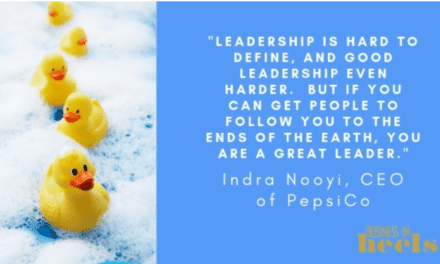
As a naive girl in school, I was well protected by my parents who did not want to install any prejudice into my sister and I. I grew up without seeing race or religion as anything fundamentally different. Now as an adult, whenever someone expresses a generalisation or bias against a group of people, I feel uncomfortable and have no understanding of the basis of their prejudice. My gender during my schooling also didn’t seem to have any impact that I can remember. I grew up believing that I could achieve a high level of education and could enter into any profession that I wanted to. I studied maths and science, which were probably considered typically male arenas, but no one ever questioned my choice of subjects. The only real concept of gender, ironically, for installed by my mother who wanted to limit my prejudice as much as possible. She had strong feminist beliefs, having grown up with four brothers, and a father who did not believe in further education for women. She was a little bit bitter and aggressive about what she felt she had missed out on. She dressed my sister and I in gender-neutral clothes when we were young, and exposed us to a broad range of books and toys. But having that childhood did not prepare me well for some of the things that I have encountered and had to deal with as an adult in the real (male) world. These are the five things that I wish I had known when I left school and became a productive member of society.
1. Sexism and gender biases are alive and well
How business works, how the law works, and even how we interact on a day-to-day basis through our customs and speech was all established by middle-aged white males. Our culture, with its emphasis on self-reliance and independence – qualities deemed especially important for men – has reinforced the message that having needs make you undesirable, or even bad. Vulnerability in business is generally frowned upon, until more recently, with our age of authenticity and vulnerability – but how many are actually practicing this truly? Having said that, how does a modern woman survive in a culture that has been established by and for middle-aged white men? How does she retain femininity and use her own unique traits to excel on her own terms, instead of putting on a mask and turning into someone else? Quite often the transformation we need to make to succeed in a traditional male industry is dissatisfying. I wish I had known what gender biases I would still have to face in this modern world, so I could have been better prepared to confront them head on. My shock and dissatisfaction stemmed from the real and perceived limitations placed on my because of my gender – lower expectations, assumptions that I would do unpaid work, and other gender biases around how I was expected to think and behave. As women, we often feel compelled to be submissive, to be meek, to be controlled. If we speak up, we have to be careful that we aren’t labelled as ‘aggressive’ or as a ‘bitch’, whereas men are encouraged to be controlling and aggressive. We often curtail our true selves so we don’t often the gender stereotypes. Slowly, the gender roles will change, as generations pass. But until that time, women need to find a way to be empowered by their gender, instead of dissatisfied with the limitations placed on us. These limitations are not always perpetuated by men, either. Be aware that many gender limitations are imposed by other women, sometimes older or your peers, or even on yourself.
2. Prepare to work harder than your peers
I am a hard worker, and I have no problems with that. But in the last few years, I was starting to become slightly bitter, because my qualifications and what I have achieved have far outstripped some of my peers, and yet to me it seems that they are getting things come easier to them. I have accepted this now, but I wish I had known that I would have to work a lot harder as a woman to get the same recognition that a man would get for less work. I also wish I had known that by being good at what you do, or being knowledgable and highly qualified, doesn’t mean that people will automatically recognise this. You are only as good as your marketing of yourself. Women are typically bad at promoting themselves, or blowing their own horn about their achievements. We are modest, and we tend to put a fair bit of our achievements down to luck. We undervalue ourselves, whilst men typically overvalue themselves. Whilst I have learnt the lesson, putting it into practice is still something that I am struggling to do everyday.
3. Be Easier on Yourself
I have always been very tough and critical of myself. I have pushed and strived, which is fine, but I am also my worst critic and can be scathing in hindsight, in relation to doubting my decisions or reliving situations that I wish I had acted in differently. This began in high school, when I developed disordered eating as a method of punishing myself, because I did not feel like I deserved to eat or enjoy food. My body image was not healthy, and probably arose due to comparing myself to others and to images in the media. I wish I had known my inner strength and how attractive I was when I was younger, because I could have given myself much more of a break. Comparisons are unhealthy for you, your mental health, and your relationships with those around you. If you feel like you’re not living up to your comparisons with your colleagues or mentors, then you may cultivate jealously and resentment towards them. We project perfection onto other women we compare ourselves with, without actually knowing what’s going on in their lives. We assume they have it all together, but actually they could be looking back at you thinking that you have it all together too. Comparison can make our own self-image more fragile. It can trigger dissatisfaction with certain aspects of our lives and our abilities, and in turn trigger a sense of shame about being needy and undeserving. When we compare, we are looking for something wrong with us. Especially when things seem to be falling apart, we compare ourselves to others who seem not to be, and we become painfully bound by the experience that something is wrong with us. Unfortunately, the edict “stop comparing yourself to others” is unlikely to be an effective recommendation to avoid this trap. Rather than fight the inevitable comparisons, there are ways that women an be thoughtful and proactive about the comparisons they make that are less likely to lead to dissatisfaction, frustration and perfectionism. A lot of this comes down to having some perspective, knowing how you define success, and getting comfortable with accept who you are.
4. Stop caring about what others think
We often make choses based on other people. Women, in particular, are very self-conscious and fearful of what other people think of us. Particularly other women. We are our own worst enemies. We don’t do certain things, like work-out, because we are worried about how we will look. We often make decisions about what we should eat or wear based on what we think others will think of us. We also do the same thing when it comes to big decisions in our lives, such as making a career choice, often to our own detriment. We are more concerned about what other people will think of us, than actually doing what is best for us. For the last fifteen years, I have been striving mindlessly. I have been pushing myself in my industry, achieving higher and higher qualifications, and burning the candle at both ends to meet my clients’ needs. By the way, the income is not great, and I earn about 1/3 of what a male with my qualifications would earn! I do enjoy helping people, but I am achieving for the sake of achieving. I am striving because my colleagues and the industry expect it. I am watching them watching me, judging me, and I am judging myself. As I said at the beginning, I have been doing many things that I don’t want to be doing for a long time, and I have been doing it to impress people that I don’t really know or care about. I wish I had known to care less about what I think others expect of me, and to actually work out what I wanted for myself.
5. Value people
I have always believed that I could not rely on other people, and that I really just had to make things happen for myself. I didn’t want to share my thoughts and plans with anyone, and I always thought that it was easier and quicker for me to do things for myself than to ask of others. I also haven’t consciously focused on creating meaningful networks and professional relationships until more recently. I wish I had known the value of relationships and having a network of people much earlier in my career. This has been the biggest game-changer for me in the last twelve months – learning to trust and rely on others, and also by reaching out and developing a professional network. To grow a business, or to scale anything significant, takes more than one person. I have finally realised that I cannot do everything myself. Also, it has been a big mistake for me not to collect professional contacts and regularly stay in touch with people, because we could have both been benefitting from that relationship now. The best support and referrals come from good relationships with other professionals, and so do the most interesting opportunities. If you are not out there talking to people about what you’re trying to achieve, then no one will know. If you keep everything in your head, then no one will know to offer opportunities to you because they don’t know that you want them.





